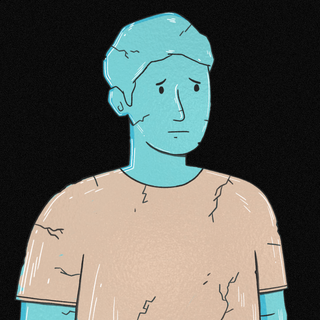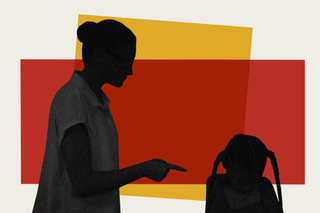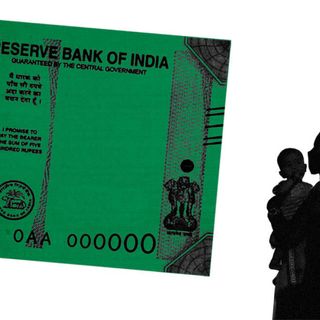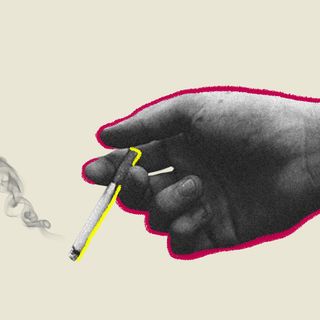
Why Growing Up With Overly Critical Parents Can Make People Highly Sensitive to Failure
“[C]hildren of critical mothers are not responding to environmental experiences in a way that promotes learning from those experiences.”

Growing up being overtly criticized by one’s parents is something many of us have experienced. Turns out, constant, overt criticism from parents can have long-term adverse ideological impacts on their children, scientists found recently.
Published in the Journal of Experimental Child Psychology, the study looked at neuroimaging scans of children to gauge how their brain responds to parental communication. The researchers found children, whose mothers are highly critical of them, had impaired brain activity — compared to other kids — in response to rewards and losses.
In other words, criticism can impede children’s neural responses to reward and punishment; resulting in their neural reactivity to gains being blunted, and to losses, being magnified. That is, children may feel losses more acutely and be unable to gauge the extent of successes lesser. Moreover, from their observations, the researchers concluded that exposure to overt criticism impairs children’s response to future environmental cues that appear in the form of rewards or losses. In the long run, it triggers a cycle of self-esteem issues and seeking validation at every corner, which continues in adulthood.
“It’s essential to understand that kids don’t react to criticism like adults do. While another adult might be able to acknowledge his or her mistake and laugh it off when you deliver a bit of constructive criticism, children have not yet developed the perspective needed to do this,” Anna Kaminsky, a developmental psychologist, who wasn’t involved in the study, had written in 2020. “[They] almost always internalize criticism, taking it to heart and sometimes sustaining lasting emotional wounds in the process.”
Related on The Swaddle:
Many Indian Families Express Care Through ‘Bullying,’ Creating Patterns of Abuse
Yet, as a culture, we relate to the idea of parental disapproval so much that “Sharma Ji ka beta” — an “adarsh ladka” from the neighbor’s family that children were often compared to by Indian parents — became a popular meme.
Mental health professionals state that different forms of parental criticism — like “comparing one’s child to others, only recognizing their failures, and projecting one’s regrets and insecurities onto them” — can result in a range of psychological damage. This follows them well into adulthood; causing children to overemphasize the mistakes they made. As a result, they end up forming negative belief systems about themselves and develop low self-esteem — leading them to depend on external validation and even doubt their own abilities to succeed in life.
Moreover, overt criticism — from any parent — is counterproductive for it latches itself onto shame. “Many parents who criticize their children have good intentions. They often hope that by pointing out their child’s errors, they can help [them]… [But] shame — the inevitable byproduct of harsh criticism — has the power to undermine the very goals parents have in mind when they admonish their children,” Kaminsky added.
The researchers of the present study also echoed similar sentiments. “When viewed within the context of reinforcement learning processes… the current results suggest that children of critical mothers are not responding to environmental experiences in a way that promotes learning from those experiences,” they noted in the study.
Related on The Swaddle:
Indian Adults Are Leading ‘Double Lives’ to Avoid Controlling Parents. But What’s the Hidden Cost?
A 2018 study also found that children of parents who were too critical of them face an increased risk for depression and anxiety in life, which can also impact other relationships they have in the future.
Explaining how that manifests, Kat Mindenhall, a licensed clinical social worker, cited this example: “Marie feels anxious about Jess [her partner] pointing out that the picture she just hung is still a bit crooked. She feels inadequate and fears that her wife will never be pleased by her. She rarely speaks up, though, for [she’s] afraid of upsetting her partner.”
The impact of parental criticism in childhood isn’t just restricted to relationships, but also to other areas of life — like job prospects, for instance. A person, if exposed to early-life criticism, continues to grapple with “low self-esteem” and “doesn’t think they are going to be able to get a ‘good’ job after graduating college and bases their success on their ability to get the ‘good’ job,” an article explains. “The person ends up not getting the job because they lack a sense of confidence, which only continues to perpetuate their low self-esteem, feelings of hopelessness about their ability to be successful, and dependency on external validation.”
“These consequences have a ripple effect in that they result in negative behaviors that continue to perpetuate negative thoughts and feelings in a vicious cycle.”
As a result of the “Sharma Ji ka beta“-syndrome, I struggle to stop comparing myself to others — both personally and professionally — even though I know it’s a harmful thought process. If you do that too, here’s hoping this study lends you insights into the “why” of it and helps you begin the process of healing.
Devrupa Rakshit is an Associate Editor at The Swaddle. She is a lawyer by education, a poet by accident, a painter by shaukh, and autistic by birth. You can find her on Instagram @devruparakshit.
Related


Providing Cash to Low‑Income Mothers May Improve Children’s Brain Development: Study
